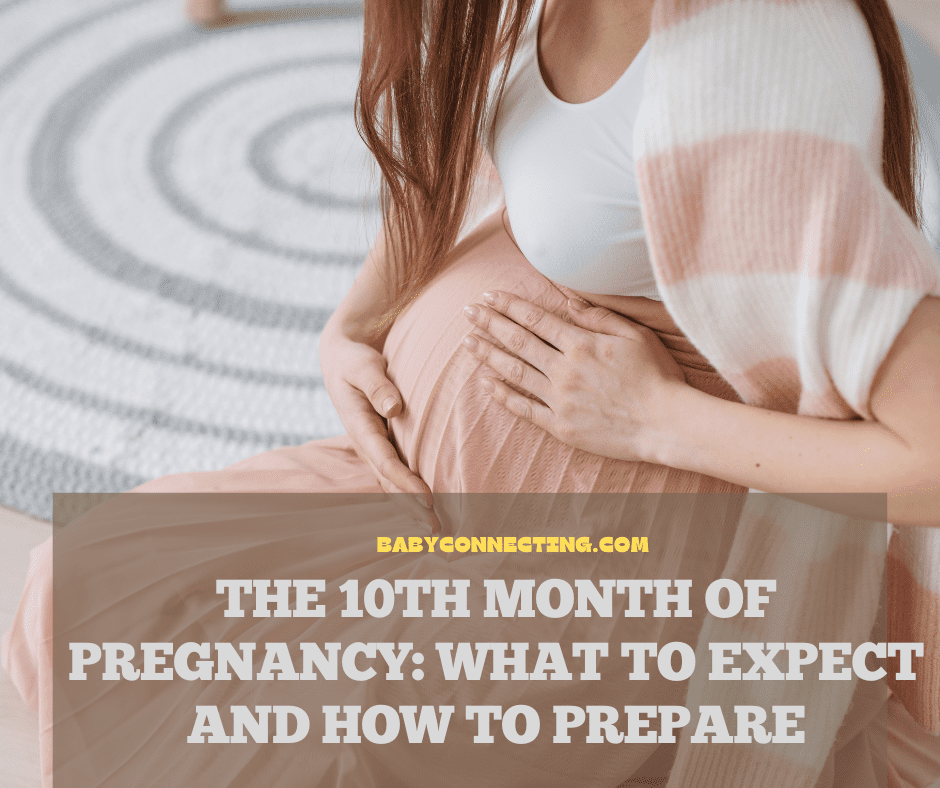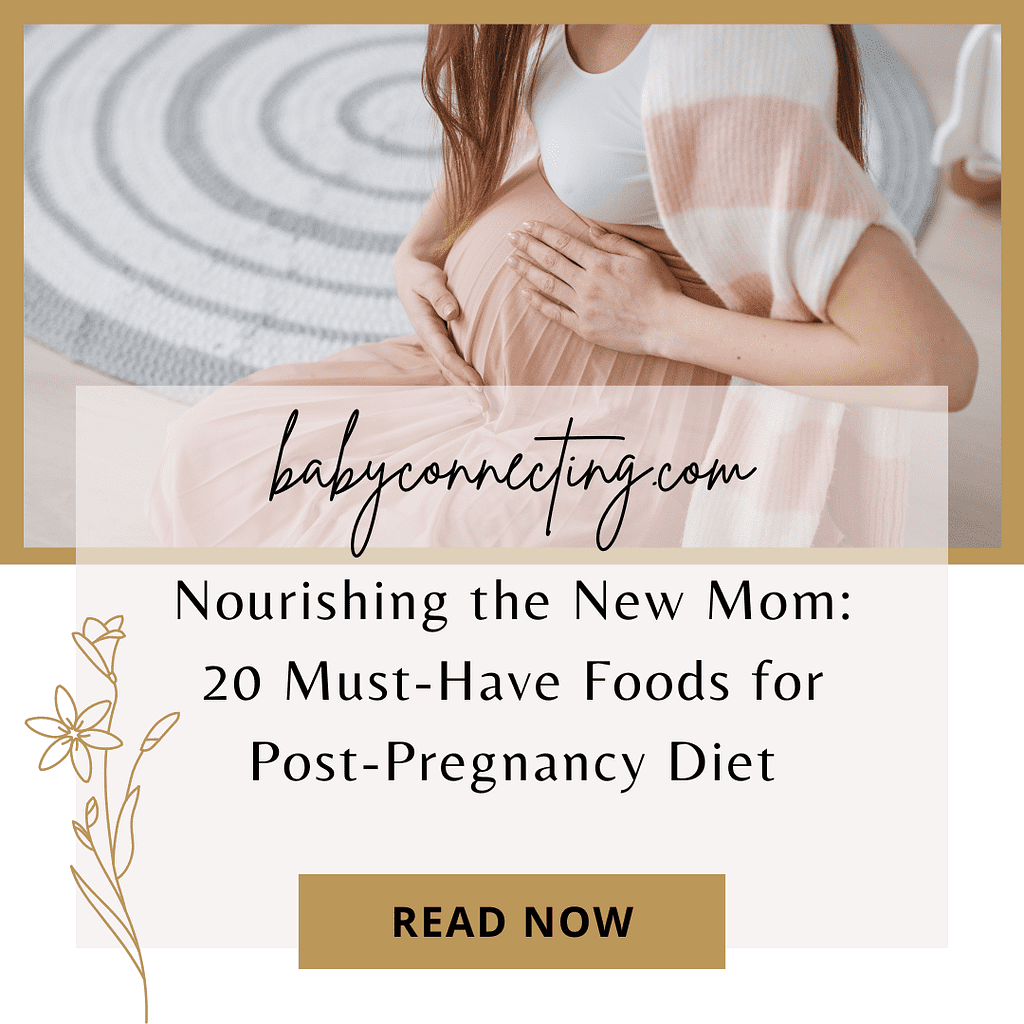The 10th Month of Pregnancy: What to Expect and How to Prepare
Introduction:
The journey of pregnancy is a remarkable experience filled with anticipation, excitement, and occasional challenges. As expectant mothers approach the final stretch of their pregnancy, the 10th month marks the culmination of this transformative journey and the beginning of a new chapter: motherhood.
In this blog post, we’ll delve into all you need to know about the 10th month of pregnancy, exploring the pros and cons, offering key pointers, and providing a deep understanding backed by research and expert insights.
Pros and Cons:
Pros:
– Anticipation of Arrival: The 10th month of pregnancy is characterized by eager anticipation as expectant parents eagerly await the arrival of their little one. This anticipation can bring a sense of joy and excitement as the due date draws near.
– Final Preparations: The 10th month provides an opportunity for expectant parents to make final preparations for the arrival of their baby. This may include setting up the nursery, attending childbirth classes, and finalizing birth plans.
– Bonding Opportunities: As the pregnancy nears its end, expectant parents may experience increased opportunities for bonding with their baby. Activities such as talking to the baby, playing music, and practicing relaxation techniques can foster a strong connection.
– Supportive Community: The 10th month offers a chance for expectant parents to lean on their support network, including family, friends, and healthcare providers, for emotional and practical support during this exciting time.
Cons:
– Discomfort and Fatigue: As the baby grows larger in the womb, expectant mothers may experience increased discomfort, including back pain, pelvic pressure, and difficulty sleeping. Fatigue may also be heightened as the body prepares for labor and delivery.
– Emotional Rollercoaster: The final weeks of pregnancy can be emotionally challenging, as expectant parents may feel a mix of excitement, anxiety, and impatience. Hormonal fluctuations and anticipation of labor and childbirth can contribute to mood swings.
– Uncertainty and Anxiety: The impending arrival of a baby can bring about feelings of uncertainty and anxiety, particularly for first-time parents. Concerns about labor, delivery, and the transition to parenthood are common during this time.
– Physical Limitations: As the due date approaches, expectant mothers may find themselves increasingly limited in their mobility and daily activities. Simple tasks such as bending, reaching, and walking may become more challenging.
Key Pointers:
1. Stay Active: Engage in gentle exercise and movement to alleviate discomfort and promote optimal positioning for labor. Activities such as walking, swimming, and prenatal yoga can be beneficial.
2. Prioritize Self-Care: Take time to rest, relax, and pamper yourself as you prepare for labor and childbirth. Practice relaxation techniques such as deep breathing, meditation, and visualization.
3. Communicate with Your Healthcare Provider: Maintain open communication with your healthcare provider and discuss any concerns or questions you may have about labor, delivery, or postpartum care.
4. Finalize Birth Plan: Review and finalize your birth plan, outlining your preferences for labor, delivery, and postpartum care. Be flexible and prepared for unexpected changes.
5. Enjoy the Journey: Embrace the final weeks of pregnancy as a special time to bond with your baby, connect with your partner, and cherish the journey of parenthood.
Research on the final weeks of pregnancy emphasizes the physical, emotional, and psychological challenges that expectant parents may encounter during this time. Studies have highlighted the importance of social support, self-care practices, and effective communication with healthcare providers in promoting positive pregnancy outcomes and maternal well-being. For example, a study published in the Journal of Obstetric, Gynecologic & Neonatal Nursing found that expectant mothers who received adequate social support reported lower levels of anxiety and higher levels of satisfaction with their childbirth experience (Journal of Obstetric, Gynecologic & Neonatal Nursing, Volume 48, Issue 2, March-April 2019).
Additionally, research has shown that self-care practices such as relaxation techniques and mindfulness interventions can reduce stress and improve maternal mental health during the final weeks of pregnancy (Complementary Therapies in Clinical Practice, Volume 35, August 2019).
In conclusion, the 10th month of pregnancy is a significant and transformative period filled with anticipation, excitement, and occasional challenges.
By embracing self-care practices, maintaining open communication with healthcare providers, and nurturing supportive relationships, expectant parents can navigate the final weeks of pregnancy with confidence and prepare for the arrival of their little one. As the due date approaches, remember to cherish the journey and look forward to the new chapter of parenthood that lies ahead.
References:
1. Cunningham, F. G., Leveno, K. J., Bloom, S. L., Spong, C. Y., Dashe, J. S., Hoffman, B. L., Casey, B. M., Sheffield, J. S. (2018). Williams obstetrics. McGraw-Hill Education.
2. American College of Obstetricians and Gynecologists (ACOG). (2020). Your Pregnancy and Childbirth Month to Month. Retrieved from https://www.acog.org/womens-health/faqs/your-pregnancy-and-childbirth-month-to-month.
3. Mayo Clinic. (2022). Pregnancy week by week. Retrieved from https://www.mayoclinic.org/healthy-lifestyle/pregnancy-week-by-week/expert-blog/what-happens-the-tenth-month-of-pregnancy/bgp-20458536.
4. Da Costa, D., Dritsa, M., Rippen, N., Lowensteyn, I., & Khalife, S. (2006). Health-related quality of life in postpartum depressed women. Archives of Women’s Mental Health, 9(2), 95-102.
5. Beijers, R., Jansen, J., Riksen-Walraven, M., & de Weerth, C. (2010). Maternal prenatal anxiety and stress predict infant illnesses and health complaints. Pediatrics, 126(2), e401-e409.
6. American Psychological Association. (2018). Managing stress during pregnancy. Retrieved from https://www.apa.org/topics/managing-stress-pregnancy.
7. Ruohomäki, A., Toffol, E., Upadhyaya, S., & Keski-Nisula, L. (2020). Maternal diet during pregnancy and cognitive functions of the offspring: A systematic review. Nutritional Neuroscience, 23(3), 174-186.


